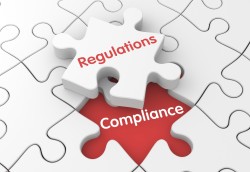One surprising upside to DOL's overtime rule change

The DOL’s change to the FLSA’s white collar overtime exemptions aren’t all doom and gloom for employers. There’s at least one silver lining.
This “glass half full” scenario comes from employment law attorney Leonard V. Feigel of the law firm Foley & Lardner LLP.
He said for those looking for a positive spin on the rule change, this could be it:
“The publication of the final rules may provide a hidden opportunity for employers to reclassify some positions that may have changed over the years and may no longer qualify for an exemption.”
In other words, the new regulations have presented employers with the opportunity to audit employees’ job duties against their job descriptions/classifications in an attempt to make sure employees are still properly classified — and, if not, change their classifications using the umbrella of the rule change as a way to minimize any potential legal liability.
It can happen to the best of us
Even the best employers can fall victim to misclassification if they’re not keeping a close eye on the evolution of employees’ work assignments.
Over time, employees’ duties can change — so what they’re doing now may be vastly different from what they were hired to do five years ago. As a result, those change in duties may have triggered the need for reclassification.
For those on the edge of being non-exempt, even minor changes in duties — the kind that can easily fly under the radar — can necessitate a change in status.
Bottom line: Even employers that are trying to do right by their workers– and pay them an honest wage for an honest day’s work — can be guilty of misclassification.
Why changes may be easier to make … for now
One problem, as Feigel pointed out, about changing an employee’s classification from exempt to non-exempt under normal conditions: It may prompt the employee to think, Maybe I shouldn’t have been classified as exempt in the first place, which could lead to a wage-and-hour lawsuit in which the employee seeks unpaid overtime.
But when the DOL’s final overtime rule is issued, these won’t be normal conditions.
Feigel said:
“Because much reclassification will occur, reclassifying positions (even if the reclassification has nothing to do with the different requirements under the amended rules) may not raise the same kinds of suspicions it would if done in a different time period.”
So the rule change presents employers with a unique opportunity to audit employee classifications and make changes if necessary.
And for those that do end up reclassifying positions, Feigel recommended referencing the DOL’s new rule when making the change.
He even offered up some sample language employers could use when doing so:
“the DOL changed the requirements for certain exemptions. Those changes are suspected to result in many jobs being changed from exempt to non-exempt. Due to those new requirements the employer evaluated certain positions and, as a result, is changing the employee’s classification.”
Notice that this language stops short of outright blaming reclassifications on the new rules.
Feigel also reminded employers to not only make sure that employees’ classifications are correct, but also that their job descriptions match the work being performed.
